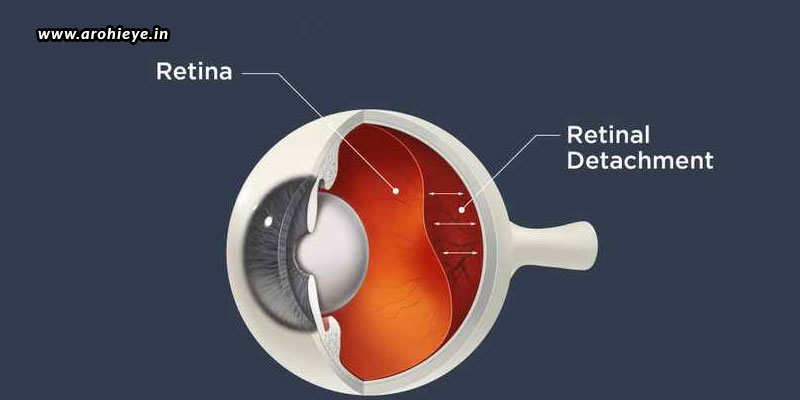Retinal detachment – As dreadful as the name itself may sound, the condition is actually a serious one, wherein the retina gets detached from its normal position, at the posterior side of the eye. It is thus a serious sight-threatening condition that requires immediate medical involvement, as any delay in the treatment may worsen the vision, and ultimately lead to complete vision loss.
How to identify retinal detachment?
The most common symptoms of retinal detachment include sudden flashes of light and occurrence of floaters, with a loss of vision. There could also be a very slight shadow type occurrence in the visual range. So, if you experience any of these, you must immediately contact the best retina specialist in Mumbai.
What causes retinal detachment?
Retinal detachment can be caused due to a number of reasons, some of the most common ones being –
- A hole or tear is generated in the retinal tissue, through which the fluid of the eye passes and gets accumulated under or near the retina. It pulls the retina away from the underlying area, thus failing to supply blood. This discontinuous functioning ultimately results in vision loss.
- Scar tissues gradually start growing on the surface of the retina, which results in the retina getting pulled from the posterior portion of the eye. This condition is seen generally in people suffering from uncontrolled diabetes, and those with diabetic retinopathy.
- Any eye injury or age-related condition of the eye may result in the eye fluid getting accumulated under or nearby the retina, again resulting in pulling away of the retina and resulting in vision loss.
Who can be affected by retinal detachment?
While retinal detachment can affect anybody at any time, there are some people who are more likely to be affected by the condition. These include people who are 50 or more years of age, those who have a genetic history of retinal detachment, those who suffer from uncontrollable diabetes, those who suffer from severe myopia, those who suffer from any eye disorder or have had a previous eye damage, or those who have had a cataract surgery.
What to do if retinal detachment is identified?
If you feel like you are experiencing any of the symptoms mentioned above in this blog, you need to get in touch with the best retina specialist in Mumbai at the earliest. This is to diagnose your eyes and confirm if you are actually suffering from retinal detachment. The eye specialist will first examine your retina with an indirect ophthalmoscope to get a high definition detailed view of your eye with a bright beam of light and exclusive lenses. Another option he may use is through ultrasonographic imaging, which uses a diagnostic imaging technique with the help of ultrasound to create an image of the internal eye structure to identify the problem.
How is retinal detachment treated?
Once it has been confirmed that you are suffering from retinal detachment, you will be only advised one treatment – and that is surgery. There is no other option to treat this condition. You have to undergo surgery to repair all the breaks and fix them; and for this, you need a professional retina specialist. The best retina specialist in Mumbai is at Arohi Eye Hospital, where all kinds of retina diseases can be resolved. May it be simple issues like floaters, or severe ones like retinal detachment, macular degeneration, or diabetic eye disease, the hospital has all the required skill, experience, and equipment to identify and treat the problem.
Dr. Shradha Goel
Dr. Shradha Goel, Chief Surgeon at Arohi Eye Hospital, is a renowned Phaco-LASIK surgeon with over 10,000 surgeries to her credit. She earned her MBBS from Grant Medical College, Mumbai, and a Master’s in Ophthalmology from Kasturba Medical College, Manipal. As a member of the American Academy of Ophthalmology, Dr. Goel specialises in LASIK, refractive errors, and cataract treatments.

